
 i_need_contribute
i_need_contribute

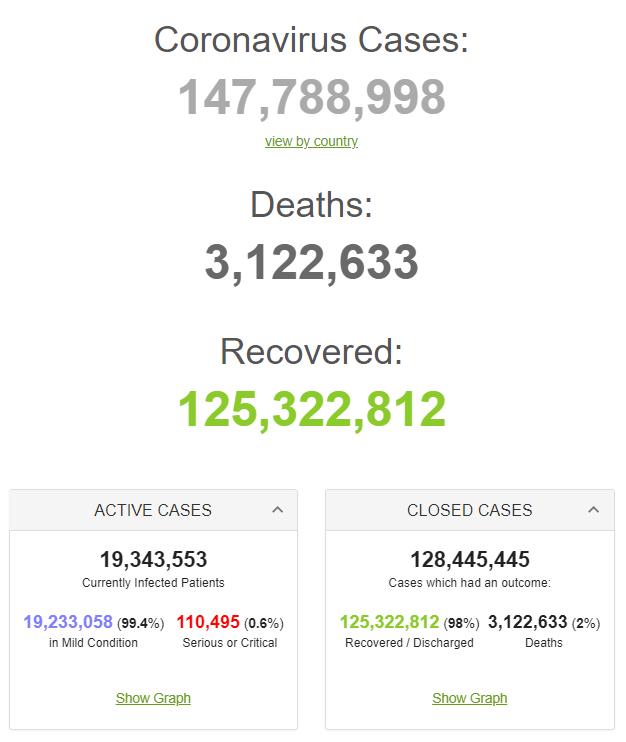
| Country, | Total | New | Total |
| Other | Cases | Cases | Deaths |
| World | 147,780,731 | 727,349 | 3,122,428 |
| USA | 32,824,389 | 34,736 | 586,152 |
| India | 17,306,300 | 354,531 | 195,116 |
| Brazil | 14,340,787 | 32,572 | 390,925 |
| France | 5,498,044 | 24,465 | 102,858 |
| Russia | 4,762,569 | 8,780 | 108,232 |
| Turkey | 4,629,969 | 38,553 | 38,358 |
| UK | 4,404,882 | 1,712 | 127,428 |
| Italy | 3,962,674 | 13,158 | 119,238 |
| Spain | 3,468,617 | 77,591 | |
| Germany | 3,298,201 | 12,014 | 82,237 |
| Argentina | 2,860,884 | 15,012 | 61,644 |
| Colombia | 2,774,464 | 17,190 | 71,351 |
| Poland | 2,758,856 | 7,219 | 65,415 |
| Iran | 2,396,204 | 19,165 | 69,574 |
| Mexico | 2,326,738 | 3,308 | 214,853 |
| Ukraine | 2,025,271 | 7,930 | 42,323 |
| Peru | 1,761,575 | 7,425 | 59,724 |
| Indonesia | 1,641,194 | 4,402 | 44,594 |
| Czechia | 1,619,383 | 1,302 | 28,962 |
| South Africa | 1,575,471 | 1,101 | 54,148 |
| Netherlands | 1,461,137 | 8,013 | 17,049 |
| Canada | 1,178,987 | 6,983 | 23,965 |
| Chile | 1,169,536 | 6,725 | 25,856 |
| Romania | 1,046,264 | 1,542 | 27,394 |
| Iraq | 1,031,322 | 6,034 | 15,257 |
| Philippines | 997,523 | 8,162 | 16,783 |
| Belgium | 972,041 | 3,934 | 23,990 |
| Sweden | 938,343 | 13,923 | |
| Israel | 838,024 | 50 | 6,352 |
| Portugal | 834,442 | 478 | 16,965 |
| Pakistan | 795,627 | 5,611 | 17,117 |
| Hungary | 769,518 | 2,328 | 26,625 |
| Bangladesh | 745,322 | 2,922 | 11,053 |
| Jordan | 702,154 | 1,731 | 8,615 |
| Serbia | 679,667 | 1,695 | 6,227 |
| Switzerland | 646,509 | 10,595 | |
| Austria | 608,979 | 2,025 | 10,087 |
| Japan | 562,141 | 5,439 | 9,913 |
| Lebanon | 520,939 | 1,324 | 7,142 |
| UAE | 510,738 | 1,813 | 1,571 |
| Morocco | 509,363 | 326 | 8,992 |
| Saudi Arabia | 412,216 | 953 | 6,900 |
| Bulgaria | 397,500 | 400 | 15,907 |
| Malaysia | 392,942 | 2,690 | 1,436 |
| Slovakia | 379,911 | 435 | 11,495 |
| Ecuador | 373,362 | 608 | 18,177 |
| Panama | 362,967 | 271 | 6,209 |
| Belarus | 352,950 | 1,276 | 2,493 |
| Greece | 333,129 | 1,399 | 10,007 |
| Croatia | 322,626 | 1,254 | 6,854 |
| Azerbaijan | 313,006 | 1,541 | 4,371 |
| Kazakhstan | 306,400 | 2,830 | 3,550 |
| Georgia | 303,751 | 966 | 4,025 |
| Tunisia | 300,342 | 1,770 | 10,304 |
| Nepal | 300,119 | 3,032 | 3,164 |
| Bolivia | 297,185 | 1,293 | 12,812 |
| Palestine | 290,972 | 713 | 3,167 |
| Paraguay | 267,082 | 1,786 | 5,900 |
| Kuwait | 266,949 | 1,545 | 1,516 |
| Dominican Republic | 264,863 | 919 | 3,454 |
| Ethiopia | 252,279 | 1,324 | 3,551 |
| Moldova | 249,139 | 241 | 5,730 |
| Denmark | 247,622 | 612 | 2,475 |
| Ireland | 246,633 | 429 | 4,873 |
| Lithuania | 241,297 | 729 | 3,848 |
| Costa Rica | 238,760 | 3,143 | |
| Slovenia | 237,028 | 416 | 4,208 |
| Egypt | 222,523 | 953 | 13,049 |
| Guatemala | 221,698 | 391 | 7,410 |
| Armenia | 213,288 | 410 | 4,018 |
| Honduras | 206,381 | 685 | 5,100 |
| Qatar | 202,201 | 705 | 428 |
| Bosnia and Herzegovina | 194,733 | 8,203 | |
| Venezuela | 191,518 | 995 | 2,047 |
| Oman | 188,816 | 3,538 | 1,977 |
| Uruguay | 184,865 | 2539 | 2,326 |
| Libya | 175,286 | 534 | 2,996 |
| Bahrain | 171,370 | 1,035 | 624 |
| Nigeria | 164,719 | 35 | 2,062 |
| Kenya | 156,787 | 469 | 2,622 |
| North Macedonia | 150,588 | 314 | 4,677 |
| Myanmar | 142,712 | 8 | 3,206 |
| Albania | 130,537 | 128 | 2,378 |
| Algeria | 120,922 | 186 | 3,207 |
| Estonia | 120,215 | 215 | 1,143 |
| S. Korea | 118,887 | 644 | 1,813 |
| Latvia | 115,316 | 361 | 2,102 |
| Norway | 110,612 | 222 | 736 |
| Cuba | 101,503 | 1185 | 591 |
| Sri Lanka | 101,379 | 793 | 642 |
| Montenegro | 96,660 | 161 | 1465 |
| Kyrgyzstan | 93,831 | 228 | 1,582 |
| Ghana | 92,166 | 185 | 777 |
| Zambia | 91,358 | 41 | 1,246 |
| China | 90,588 | 13 | 4636 |
| Uzbekistan | 89,027 | 348 | 643 |
| Finland | 85,804 | 197 | 903 |
| Mozambique | 69,665 | 22 | 807 |
| El Salvador | 68,468 | 2,103 | |
| Luxembourg | 66,007 | 790 | |
| Suriname | 10,045 | 49 | 198 |
| Vietnam | 2,843 | 10 | 35 |
Retrieved from: https://www.worldometers.info/coronavirus/
By CNN's Paula Newton
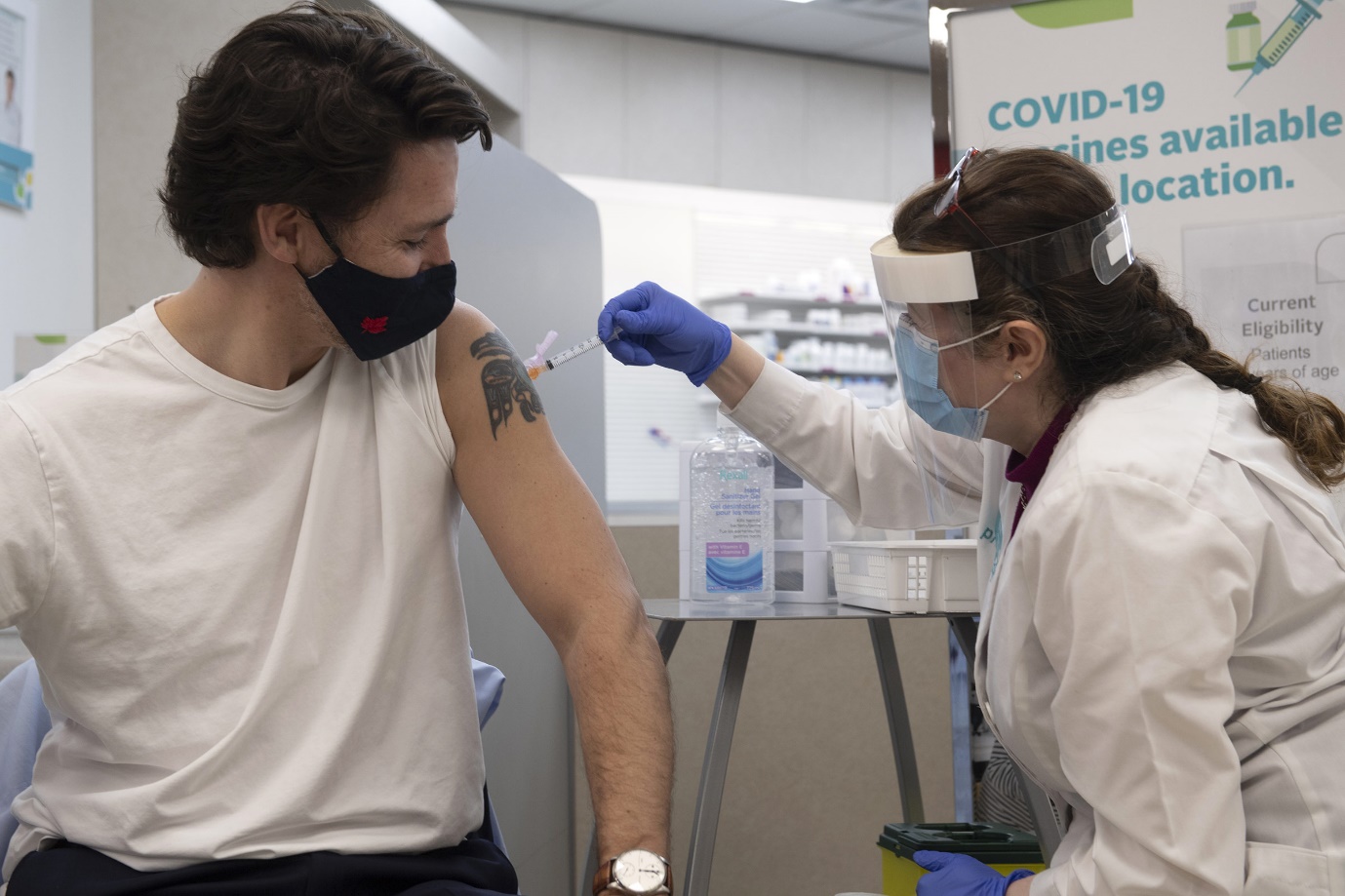 Canadian Prime Minister Justin Trudeau receives a dose of the AstraZeneca Covid-19 vaccine in Ottawa, Canada, on Friday, April 23. Adrian Wyld/CP/Bloomberg/ Getty Images
Canadian Prime Minister Justin Trudeau receives a dose of the AstraZeneca Covid-19 vaccine in Ottawa, Canada, on Friday, April 23. Adrian Wyld/CP/Bloomberg/ Getty Images
Canada’s Prime Minister Justin Trudeau received his first shot of the AstraZeneca vaccine Friday as the country’s Covid-19 case count rises to record levels.
Trudeau went to a local pharmacy with his wife, Sophie Gregoire Trudeau, where they both received the vaccine, Trudeau saying he was "very excited" and gave a thumbs up when it was done.
Trudeau was also told after the vaccination that his second dose was not yet scheduled, and he would receive an email notice to schedule a follow-up shot. Canada’s vaccine rollout has suffered from supply issues and most second doses are being delayed by up to four months.
Some context: About an hour after Trudeau received his vaccine, Canada’s expert advisory panel updated its guidance on AstraZeneca, saying it should be offered to all Canadians 30 or older. It had previously recommended it be administered only to those 55 or older although some provinces have already administered doses to those 40 and older.
The panel also indicated that mRNA vaccines, either Pfizer or Moderna, should be "preferentially offered" and that a complete series of the AstraZeneca vaccine should be used if an individual does not wish to wait for an mRNA vaccine.
Currently in most Canadian provinces, people aged 55 and younger have not yet been prioritized for an mRNA vaccine unless they are essential workers or they qualify in other categories like caregivers.
The news on vaccines came as Canada released new modeling on the impact of new infections in the weeks to come.
Daily case counts, hospitalizations and ICU admissions continue to increase as well as evidence that there is a troubling increase in mortality, now up more than 17% in the last week alone, according to Canada’s public health agency.
Officials also said Friday that extensive restrictions and lockdowns across the country seem that have stalled the growth of the pandemic, although new daily case counts have perhaps plateaued at very high levels.
Retrieved from: https://edition.cnn.com/world/live-news/coronavirus-pandemic-vaccine-updates-04-26-21/index.html
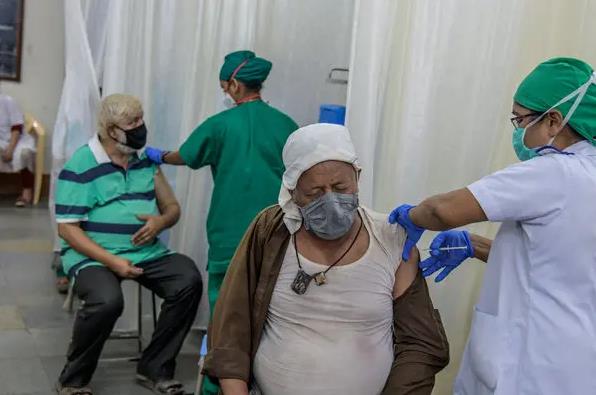
Vaccinations at a government hospital in Mumbai this month.Credit...Atul Loke for The New York Times
The Biden administration, under increasing pressure to address a devastating surge of the coronavirus in India, said on Sunday that it had partially lifted a ban on the export of raw materials for vaccines and would also supply India with therapeutics, rapid diagnostic test kits, ventilators and personal protective gear.
“Just as India sent assistance to the United States as our hospitals were strained early in the pandemic, the United States is determined to help India in its time of need,” Emily Horne, a spokeswoman for the National Security Council, said in a statement on Sunday.
The announcement, an abrupt shift for the administration, came after Jake Sullivan, President Biden’s national security adviser, held a call earlier in the day with Ajit Doval, his counterpart in India, and as India reports higher case numbers each day. On Monday, the Indian government reported almost 353,000 new daily infections, the fifth consecutive day the country set a world record. Ms. Horne said the United States had “identified sources of specific raw material urgently required for Indian manufacture of the Covishield vaccine,” the Indian-produced version of the AstraZeneca vaccine.
The situation in India is dire. The country is witnessing perhaps the worst crisis any nation has suffered since the pandemic began, with hospitals overflowing and desperate people dying in line waiting to see doctors — and mounting evidence that the actual death toll is far higher than officially reported. Officials say they are running desperately low on supplies, including oxygen and protective gear, as a deadly new variant is thought to be behind a rise in cases.
Many Indians are frustrated that their country, the world’s largest producer of vaccines, is so behind in its own inoculation campaign. Fewer than 10 percent of Indians have received even one dose, and just 1.6 percent are fully vaccinated, according to a New York Times database — even though India is producing two vaccines on its own soil.
Yet even as horrifying images of strained hospitals and orange flames from mass cremation sites circulated around the world last week, administration officials had pushed back as pressure mounted for the United States to broaden its effort to combat the surge in India. For Mr. Biden, the crisis in India amounts to a clash of competing forces. The president came into office vowing to restore America’s place as a leader in global health, and he has repeatedly said the pandemic does not stop at the nation’s borders.
But he is also grappling with the legacy of his predecessor’s “America First” approach, and he must weigh his instincts to help the world against the threat of a political backlash for giving vaccines away before every American has had a chance to get a shot. As of Sunday, 28.5 percent of Americans were fully vaccinated, and 42.2 percent had had at least one dose, according to the Centers for Disease Control and Prevention.
The statement on Sunday did not mention the possibility of the United States directly sending vaccines to India. But in an appearance on ABC’s “This Week” on Sunday, Dr. Anthony S. Fauci, the nation’s leading infectious disease expert, said the United States would consider sending some doses of the AstraZeneca vaccine there.

Bodies awaiting cremation on Friday in East Delhi.Credit...Atul Loke for The New York Times
NEW DELHI — With a devastating second wave of Covid-19 sweeping across India and lifesaving supplemental oxygen in short supply, India’s government on Sunday said it had ordered Facebook, Instagram and Twitter to take down dozens of social media posts critical of its handling of the pandemic.
The order was aimed at roughly 100 posts that included critiques from opposition politicians and calls for Narendra Modi, India’s prime minister, to resign. The government said that the posts could incite panic, used images out of context and could hinder its response to the pandemic.
The companies complied with the requests for now, in part by making the posts invisible to those using the sites inside India. In the past, the companies have reposted some content after determining that it didn’t break the law.
The takedown orders come as India’s public health crisis spirals into a political one, and set the stage for a widening struggle between American social media platforms and Mr. Modi’s government over who decides what can be said online.
On Monday, the country reported almost 353,000 new infections and 2,812 deaths, marking the fifth consecutive day it set a world record in daily infection statistics, though experts warn that the true numbers are probably much higher. The country now accounts for almost half of all new cases globally. Its health system appears to be teetering. Hospitals across the country have scrambled to get enough oxygen for patients.
In New Delhi, the capital, hospitals this weekend turned away patients after running out of oxygen and beds. Last week, at least 22 patients were killed in a hospital in the city of Nashik, after a leak cut off their oxygen supplies.
Online photos of bodies on plywood hospital beds and the countless fires of overworked crematories have gone viral. Desperate patients and their families have pleaded online for help from the government, horrifying an international audience.
Mr. Modi has been under attack for ignoring the advice of experts about the risks of loosening restrictions, after he held large political rallies with little regard for social distancing. Some of the content now offline in India highlighted that contradiction, using lurid images to contrast Mr. Modi’s rallies with the flames of funeral pyres.

People waiting to get vaccinated in New Orleans this month.Credit...Emily Kask for The New York Times
More than five million Americans, or nearly 8 percent of those who got a first shot of the Pfizer or Moderna vaccines, have missed their second doses, according to the most recent data from the Centers for Disease Control and Prevention. That is more than double the rate among people who got inoculated in the first several weeks of the nationwide vaccination campaign.
Even as the country wrestles with the problem of millions of people who are wary about getting vaccinated at all, local health officials are confronting a new challenge of ensuring that those who do get inoculated are doing so fully.
The reasons vary for why people are missing their second shots. In interviews, some said they feared the side effects, including flulike symptoms, which were more common and stronger after the second dose. Others said they felt that they were sufficiently protected with a single shot.
Those attitudes were expected, but another hurdle has been surprisingly prevalent. A number of vaccine providers have canceled second-dose appointments because they ran out of supply or didn’t have the right brand in stock.
Walgreens, one of the biggest vaccine providers, sent some people who got a first shot of the Pfizer or Moderna vaccine to get their second doses at pharmacies that had only the other vaccine on hand.
Several Walgreens customers said in interviews that they scrambled, in some cases with help from pharmacy staff members, to find somewhere to get the correct second dose. Others, presumably, simply gave up.
Retrieved from: https://www.nytimes.com/live/2021/04/25/world/covid-vaccine-coronavirus-cases
Israel’s Health Ministry said on Sunday it is examining a small number of cases of heart inflammation in people who had received Pfizer’s (PFE.N) COVID-19 vaccine, though it has not yet drawn any conclusions.
Pfizer said it has not observed a higher rate of the condition than would normally be expected in the general population.
Israel's pandemic response coordinator, Nachman Ash, said that a preliminary study showed "tens of incidents" of myocarditis occurring among more than 5 million vaccinated people, primarily after the second dose.
Ash said it was unclear whether this was unusually high and whether it was connected to the vaccine.
Most of the cases were reported among people up to age 30.
"The Health Ministry is currently examining whether there is an excess in morbidity (disease rate) and whether it can be attributed to the vaccines," Ash said.
Ash, who spoke about the issue in a radio interview and during a news conference, referred to it as a "question mark", and emphasized that the Health Ministry has yet to draw any conclusions.
Determining a link, he said, would be difficult because myocarditis, a condition that often goes away without complications, can be caused by a variety of viruses and a similar number of cases were reported in previous years.
Pfizer, asked by Reuters about the review, said it is in regular contact with Israel’s Health Ministry to review data on its vaccine.
The company said it "is aware of the Israeli observations of myocarditis that occurred predominantly in a population of young men who received the Pfizer-BioNTech COVID-19 vaccine".
"Adverse events are regularly and thoroughly reviewed and we have not observed a higher rate of myocarditis than what would be expected in the general population. A causal link to the vaccine has not been established," the company said.
"There is no evidence at this time to conclude that myocarditis is a risk associated with the use of Pfizer/BNT COVID-19 vaccine."
Israel has been a world leader in its vaccination rollout, with close to 60% of its 9.3 million population having received the Pfizer vaccine. Its nationwide database has already showed the vaccine to be highly effective in preventing the symptoms and severe illness associated with COVID-19.
Since January, shortly after the vaccine campaign began, daily infections dropped from a peak of more than 10,000 to just 129 before the weekend.
Nadav Davidovitch, director of the school of public health at Israel's Ben Gurion University, said that even if a correlation between the myocarditis cases and the vaccine were established, it did not appear to be serious enough to stop administering the vaccine.
"It's a situation that should be looked into, and we need to wait for a final report, but in an interim analysis it seems the risk of getting sick from COVID-19 is much higher than from the vaccine's adverse events, and the risk of peri/myo-carditis following the vaccine is low and temporary," he said.
Retrieved from: https://www.reuters.com/world/middle-east/israel-examining-heart-inflammation-cases-people-who-received-pfizer-covid-shot-2021-04-25/
A research study in South Africa further evaluating Johnson & Johnson's (JNJ.N) COVID-19 vaccine in the field will resume on Wednesday, the health ministry said, after the study was paused over rare cases of blood clots in people given the vaccine.
During the pause, it had been established that there is a one in a million chance of getting a clot after the vaccine, so regulators across the world have recommended the continued use of J&J's shot, the ministry said.
Local regulator SAHPRA, the South African Medical Research Council and health ministry have worked to ensure there is intensified pre-vaccination assessment and post-vaccination monitoring when the J&J study resumes, it added.
Retrieved from: https://www.reuters.com/business/healthcare-pharmaceuticals/jj-vaccine-study-resume-south-africa-wednesday-ministry-says-2021-04-26/
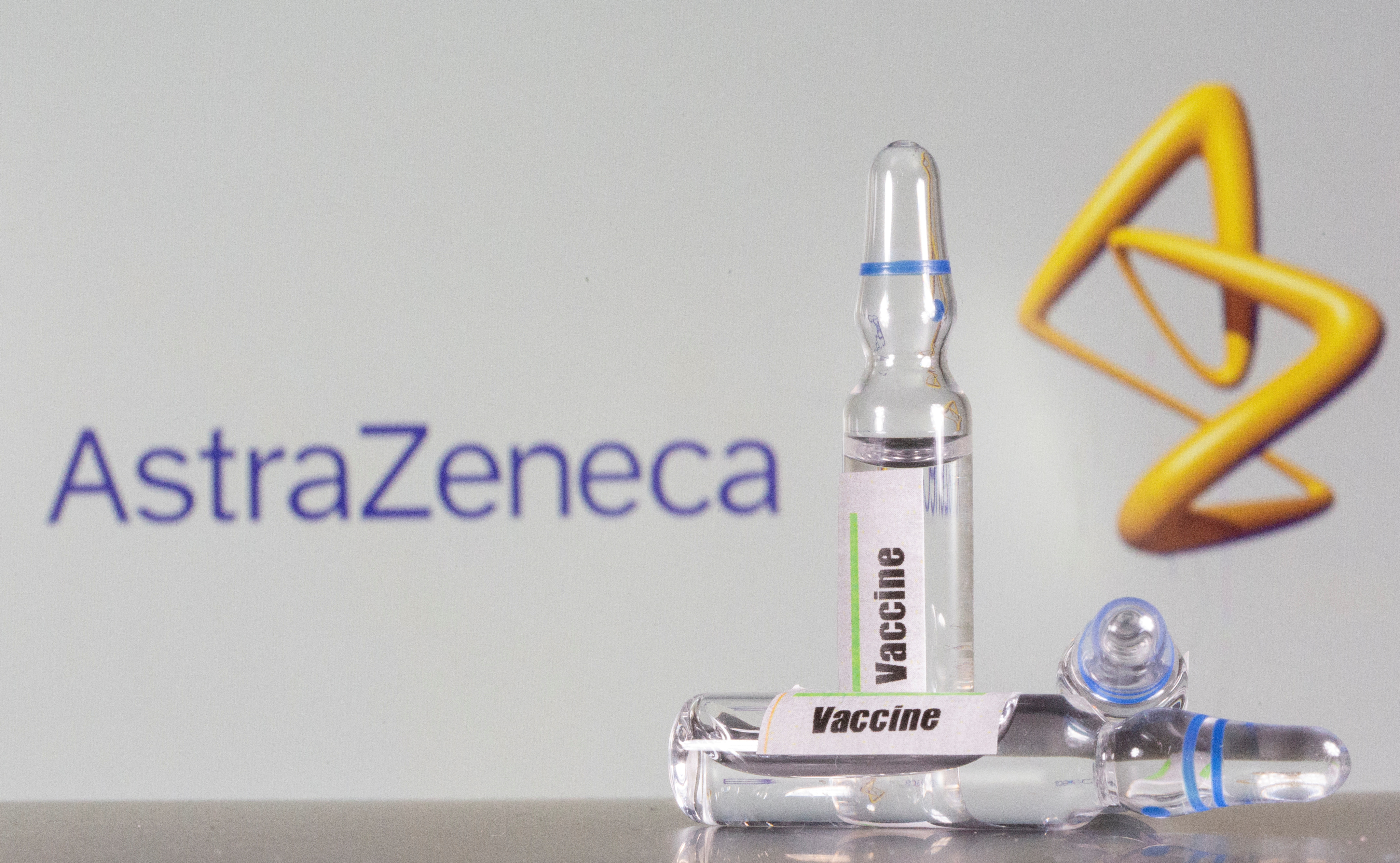
Malaysian health authorities on Monday said the vaccine developed by AstraZeneca (AZN.L) is safe for use, three days after the Southeast Asian nation received its first batch of the shots bought through the global COVAX facility.
Some countries have limited or halted its use over possible links to blood clotting. AstraZeneca says regulatory reviews in Britain and Europe have noted its vaccine offers a high level of protection and that its benefits far outweigh any risks
"I confirm the vaccine developed by AstraZeneca is safe, and it will be administered to those aged 60 years and older," Health Minister Adham Baba said in a televised news conference.
Malaysia received its first shipment of nearly 270,000 doses of AstraZeneca's vaccine on Friday.
Ministry officials said the vaccine was found to be "suitable for use" for those aged 60 and older, and were looking into the available data before approving it for use for other age groups.
Malaysia secured a total of 12.8 million doses from AstraZeneca, half of which will come via the COVAX facility. It was slated to receive the first 600,000 doses in June.
Retrieved from: https://www.reuters.com/world/asia-pacific/malaysia-says-astrazeneca-vaccine-safe-will-be-used-elderly-2021-04-26/
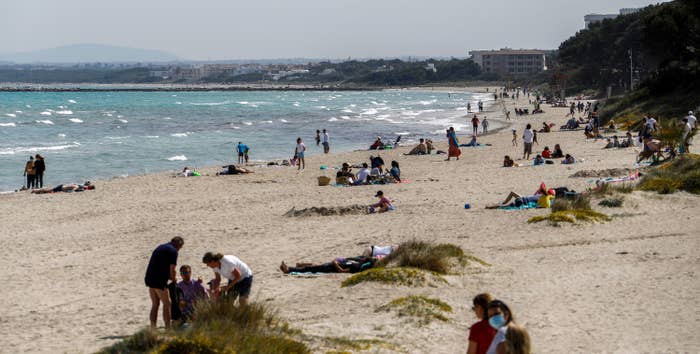
People on the beach in Mallorca, Spain Picture Alliance / Getty Images
Police in Spain arrested a 40-year-old man after he allegedly infected 22 people with the coronavirus, including three 1-year-olds, when he went to work and the gym despite having symptoms of COVID-19.
Spain's national police said the agency started to investigate the infections in January when authorities became aware of a COVID-19 outbreak at a “well-known” workplace in the town of Manacor on the island of Mallorca. The man believed to be at the center of the outbreak showed up to work, and even after his colleagues expressed concern about his symptoms, he refused to go home, police said.
After work, he went to a medical center to undergo a COVID-19 test but then went to the gym and back to work the next day — despite not having his results and still showing symptoms, including a 104-degree fever, authorities said. He returned to work again the following day and refused to go home even after his coworkers and bosses, concerned that he could infect them with the virus, told him to, police said.
During the day, he would walk around the business, lower his mask, and cough, saying, "I'm going to infect you all with the coronavirus," Spain's national police said.
At the end of the day, he was informed that the COVID test had come back positive. Five of his coworkers ended up testing positive, then went on to infect several relatives, including three babies who were only 1 year old. The man is also accused of infecting three people at the gym who ended up passing the virus on to several family members.
In total, 22 people were infected with the virus, the national police said. None of those infected ended up having to be admitted to the hospital.
The man was arrested on suspicion of assault, and on Saturday his case was handed over to the judicial authority.
There have been about 3.5 million cases of COVID-19 in Spain and nearly 77,600 deaths, according to Johns Hopkins University.
Retrieved from: https://www.buzzfeednews.com/article/adolfoflores/coronavirus-man-arrest-infected-mallorca